Hey there, car enthusiast! Buckle up and get ready to have your mind blown because we’re about to debunk the top myths and misconceptions about auto insurance.
If you think being a safe driver means you can skip out on coverage, or if you believe that red cars are insurance nightmares, think again! We’re here to set the record straight and show you that credit scores, stolen belongings, and even natural disasters aren’t what they seem when it comes to your precious wheels.
So grab a cup of coffee (or maybe a doughnut), sit back, and prepare to become an auto insurance master.
Let’s bust those myths together!
Key Takeaways
- Car color does not affect auto insurance rates.
- Factors that impact auto insurance rates include age, vehicle type, credit score, and location.
- Auto insurance policies provide comprehensive protection for various types of damage, including theft.
- Auto insurance does not cover mechanical breakdowns or damage caused by natural disasters.
Myth: Auto Insurance Is Unnecessary if You’re a Safe Driver

Contrary to popular belief, auto insurance isn’t unnecessary even if you’re a safe driver. Sure, you may be the Mario Andretti of the neighborhood, expertly maneuvering through traffic and avoiding potholes like a pro. But let me tell you something, my friend – accidents can happen to anyone. Even the most skilled drivers can find themselves in a sticky situation.
That’s where car insurance comes in handy. Not only does it protect you financially in case of an accident, but it can also offer some nifty discounts for being a safe driver. Yes, you heard that right – discounts! Just because you’re responsible behind the wheel doesn’t mean your wallet should suffer.
Many insurance companies offer safe driver discounts as an incentive for those who have managed to avoid any fender benders or embarrassing parking mishaps. So why not take advantage of these sweet deals? It’s like getting rewarded for doing what you already do best – driving safely!
And let’s not forget about other car insurance discounts that are up for grabs. You could save money by bundling your policies together or having certain safety features installed in your vehicle. Who knew being cautious could actually pay off?
Myth: Red Cars Are More Expensive to Insure

Hey there, speed racer! Buckle up for a wild ride as we dive into the colorful world of car insurance myths.
First up on our journey is the infamous ‘Red Cars Are More Expensive to Insure’ myth. But before we rev our engines, let’s also explore the factors that really impact insurance rates and why your driving record might just be the key to unlocking those sweet, sweet savings.
Car Color Insurance Myth
If you believe that the color of your car affects your insurance rates, you’ll be relieved to know that it’s actually a myth. Despite what some may say, insurers don’t care if your car is as bright as a disco ball or as dark as midnight. They’re more concerned with factors like your driving record and the make and model of your vehicle. To put this myth to rest once and for all, let’s take a look at a handy table:
| Car Color | Insurance Rate |
|---|---|
| Red | Same |
| Blue | Same |
| Green | Same |
| Yellow | Same |
| Purple | Same |
As you can see from this comprehensive analysis, there is absolutely zero correlation between car color and accident rates. So go ahead and paint your ride any color under the sun without worrying about breaking the bank on insurance premiums!
Factors Impacting Insurance Rates
One of the factors that can impact insurance rates is the age of the driver. It may not be fair, but hey, life rarely is! So buckle up and let’s dive into the wild world of premium calculations.
Here are a few things you should know:
-
Your driving experience: Insurance companies love it when you’ve got years under your belt. They see it as a sign that you’ve mastered the art of dodging reckless drivers and potholes.
-
Your vehicle type: Oh boy, this one can be a game-changer! The flashier your ride, the higher your insurance rates will be. Those shiny wheels might turn heads on the street, but they’ll also catch some attention from insurers.
-
Your credit score: Yup, even financial gurus care about this one. A good credit score tells insurers that you’re responsible in all aspects of life.
-
Your location: Sorry urban dwellers, living in a congested area means higher insurance rates. It’s like paying extra for those traffic jams!
Now that we’ve covered these factors affecting premium calculation and vehicle types’ impact on insurance rates, let’s shift gears and talk about why your driving record is so darn important.
Importance of Driving Record
Your driving record can have a significant impact on your insurance rates. It’s true, every little mistake you make on the road can come back to haunt you in the form of higher premiums. But hey, don’t worry! We’re here to help you navigate through this crazy world of auto insurance myths and misconceptions. Let’s start by talking about the importance of driver age and the impact of traffic violations.
Age matters when it comes to insurance rates. Young drivers, listen up! Insurance companies often see you as inexperienced and more prone to accidents. So, until you gain some years behind the wheel without any incidents, expect your premiums to be a bit higher.
Now let’s talk about traffic violations. Speeding tickets, red light infractions, and other moving violations can really take a toll on your insurance rates. Remember that table we promised? Take a look at how different traffic violations can impact your premiums:
| Traffic Violation | Impact on Premiums |
|---|---|
| Speeding Ticket | +10% |
| Red Light Infraction | +15% |
| DUI | +25% |
As you can see, those flashing lights in your rearview mirror could end up costing you more than just a fine.
Myth: Your Credit Score Doesn’t Affect Your Auto Insurance Rates

Don’t believe the myth that your credit score doesn’t impact your auto insurance rates. It’s time to debunk this misconception once and for all. Your credit score actually plays a significant role in determining how much you’ll be paying for your car insurance. Shocking, isn’t it? But fear not, my savvy friend, because I’m here to break it down for you.
Let’s dive into the impact of your credit score on those dreaded insurance rates:
-
Higher Credit Score: A high credit score can work wonders for you when it comes to auto insurance rates. It tells the insurance company that you’re responsible with your finances and have a lower risk of filing claims. So, keep those bills paid on time and watch those premiums drop!
-
Lower Credit Score: On the flip side, if your credit score is less than stellar, brace yourself for higher insurance rates. Insurance companies consider individuals with lower scores as higher-risk clients who are more likely to make claims. Time to dust off that budgeting spreadsheet!
-
Credit History: It’s not just about the number itself; insurers also take into account your credit history. Late payments, bankruptcy filings, or maxed-out credit cards can send alarm bells ringing in their offices. So make sure to keep an eye on your financial behavior while avoiding any impulsive online shopping sprees.
-
State Regulations: Remember that each state has its own regulations regarding the use of credit scores in determining auto insurance rates. Some states prohibit this practice altogether or limit its influence, while others allow insurers to weigh it more heavily. Know thy state laws!
Now that we’ve cleared up this myth, stay tuned for more eye-opening truths about auto insurance! You’re on a journey towards mastery of all things car-related – buckle up and enjoy the ride!
Myth: Auto Insurance Covers All Types of Vehicle Damage
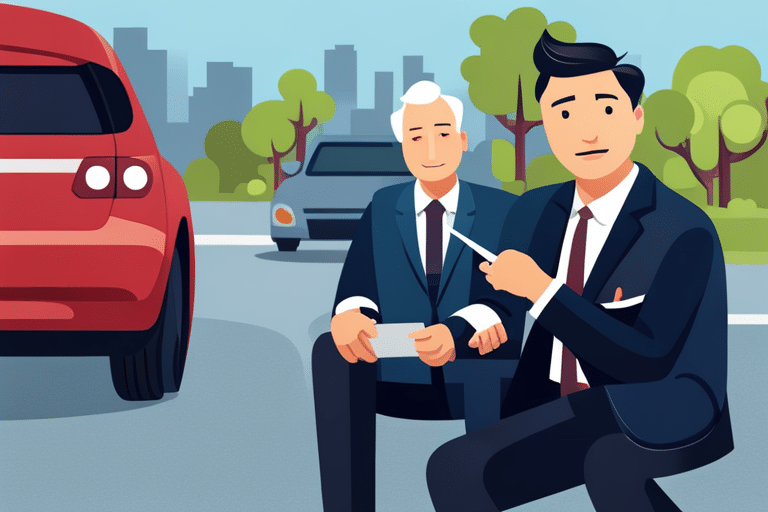
So, you think that once you have auto insurance, your vehicle is protected from any kind of damage? Well, my friend, let me burst that bubble for you.
Auto insurance may seem like a superhero cape for your car, but it actually comes with its limitations and exclusions. From limited coverage for certain types of damage to exclusions for incidents like racing or intentional acts, the fine print in your policy can be quite surprising.
Time to put on your detective hat and dig into the nitty-gritty details!
Limited Coverage for Damage
There’s a misconception that auto insurance has limited coverage for damage, but in reality, most policies provide comprehensive protection. So, let’s debunk this myth once and for all! Here are some reasons why you should never underestimate your auto insurance:
-
No exclusions for incidents: Your policy doesn’t discriminate between accidents caused by a sneezing fit or hitting a rogue shopping cart. It’s got your back, no matter how weird the situation gets!
-
Coverage extends beyond collisions: From hailstorms to falling tree branches, your auto insurance is like a superhero protecting your car from unexpected perils.
-
Don’t forget about theft: If your car becomes an unfortunate target of thieves, rest assured knowing that most policies offer coverage against this dastardly act.
-
Roadside assistance is a lifesaver: Ever had a flat tire in the middle of nowhere? With the right policy, you can call for help and enjoy the sweet relief of having someone fix it for you.
Exclusions for Certain Incidents
Alright, buckle up and get ready for some more myth-busting goodness! In our previous subtopic, we talked about limited coverage for damage. But now, let’s dive into another area where misconceptions may be lurking – exclusions for certain incidents.
Now, you might think that your auto insurance has got you covered for any and all accidents. After all, that’s what it’s there for, right? Well, not exactly. Insurance policies often come with exclusions for specific situations like racing or intentional acts of damage.
But wait! There’s more! When it comes to theft, coverage limitations can rear their sneaky little heads too. Your policy might have a cap on how much they’ll reimburse you if your precious ride gets stolen.
To help you wrap your head around this confusing world of exclusions and limitations, here’s a handy-dandy table:
| Incident | Exclusions |
|---|---|
| Racing | Sorry Speedy Gonzalez, no coverage here |
| Intentional Damage | No smashing your car into walls on purpose |
| Theft | Coverage only goes so far when thieves strike |
Remember folks: read the fine print in your policy to know exactly what is excluded or limited. And always drive safely – no racing unless you’re in a video game!
Myth: Your Insurance Will Cover Stolen Personal Belongings From Your Car
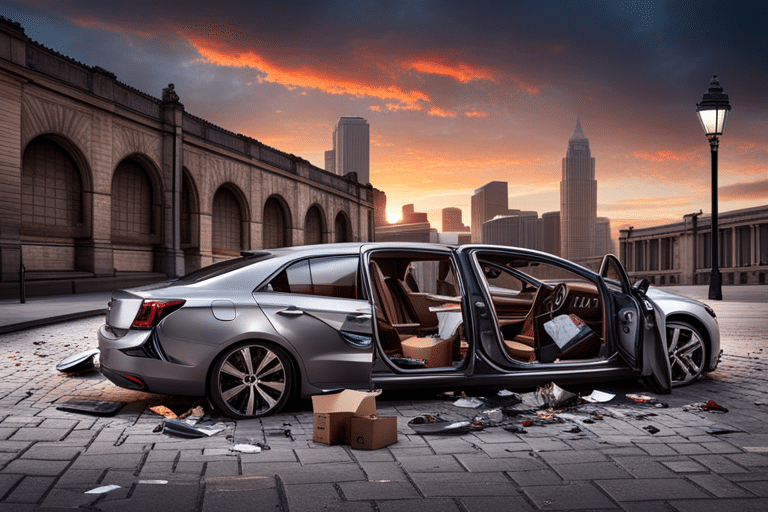
Don’t assume that your insurance will cover stolen personal belongings from your car. It’s a common misconception, but unfortunately, auto insurance doesn’t always have you covered in this situation. So before you start stashing your prized possessions in the glove compartment or under the seat, let’s burst this bubble and uncover the truth about car insurance coverage for stolen items.
Here are some discussion ideas to get our wheels turning:
-
Car insurance coverage for personal belongings: While your auto insurance policy may provide coverage for damages to your vehicle caused by theft, it typically does not extend to any valuable items inside. So unless you’ve got a diamond-encrusted steering wheel (in which case, kudos to you), don’t expect your insurer to reimburse you for that missing laptop or designer handbag.
-
Auto insurance coverage for theft incidents: Now here’s where things get interesting. If someone breaks into your car and steals something, it may actually be covered under your homeowner’s or renter’s insurance policy. That’s right! Your home sweet home could come to the rescue when your car gets violated.
-
But wait! There’s more: Some auto insurers offer optional add-ons like ‘personal effects coverage’ or ‘comprehensive coverage,’ which can help protect against theft of personal belongings from your vehicle. So if you’re prone to leaving expensive gadgets lying around in plain sight (tsk tsk), it might be worth considering these extra layers of protection.
-
Prevention is key: Of course, the best way to avoid heartache and headache is by taking preventive measures. Don’t make it easy for thieves – keep valuables out of sight, lock doors and windows securely, and park in well-lit areas whenever possible. Remember: an ounce of prevention is worth a pound of reimbursement claims!
Myth: Your Auto Insurance Rates Will Skyrocket After a Minor Accident

So, you’ve had a little fender bender. It happens to the best of us! But now you’re worried that your auto insurance rates are going to skyrocket faster than a rocket-powered roller coaster.
Well, fear not! Let’s dive into the fascinating world of accident impact on rates and the factors that actually affect your insurance premiums. Trust me, it’s not as scary as it seems!
Accident Impact on Rates
Having an accident can definitely affect your auto insurance rates. But don’t fret, my friend! Contrary to popular belief, not every fender bender will cause your premiums to skyrocket like a rocket-powered unicorn. Let’s debunk some common misconceptions about accidents and insurance rates:
-
Accident forgiveness: Some insurers offer this magical feature that forgives your first accident and keeps your rates from going through the roof. It’s like having a guardian angel for your car!
-
No fault insurance: In certain states, if you’re in an accident, it doesn’t matter whose fault it is—you won’t necessarily see a major spike in your rates. It’s like a fairytale where everyone shares the blame and lives happily ever after.
-
Safe driver discounts: If you’ve been keeping those wheels on the road without any mishaps, most insurers will reward you with lower rates. It pays to be good behind the wheel!
-
The power of shopping around: Don’t settle for the first rate presented to you after an accident. Explore different options and find an insurer who understands that even master drivers have their off days.
Factors Affecting Insurance Premiums
Accidents can impact your insurance rates, but hey, don’t sweat it! There are other factors that also play a role in determining those pesky premiums. Let’s take a joyride through the factors affecting insurance premiums and see what makes them tick.
First up, we have your driving history. Yeah, that time you mistook the gas pedal for the brake? It’s not exactly a gold star on your record. But fear not, my friend! Insurance companies also consider things like age and gender. Apparently, being an experienced driver with a spotless record earns you some major brownie points.
Next on our list is vehicle modifications. Sure, adding those neon lights might make your car look fly, but it could also send your premiums skyrocketing. The impact of these modifications can vary depending on what you’ve done to your ride.
Myth: Auto Insurance Follows the Driver, Not the Car
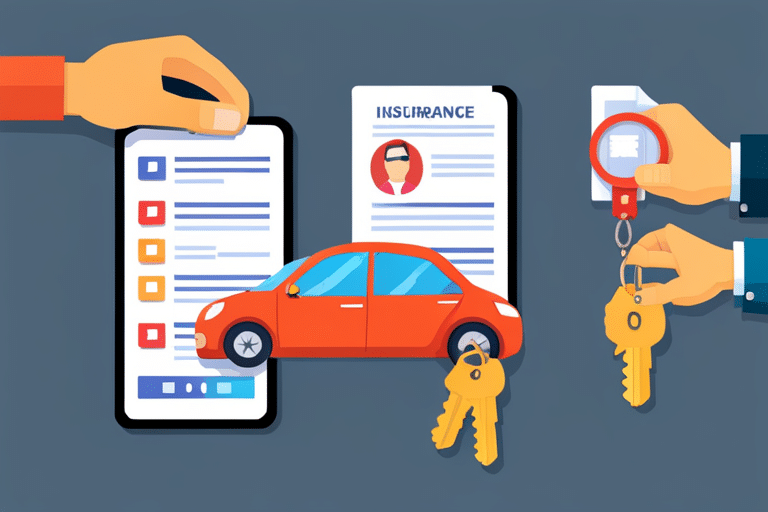
You may believe that auto insurance follows you, not your car, but that is actually a common misconception. When it comes to auto insurance claims and liability coverage, it’s important to understand how things really work. So let’s debunk this myth together and shed some light on the truth:
-
Your car is the star: Auto insurance primarily follows the car rather than the driver. So if you lend your cousin your shiny new convertible and they end up in a fender bender, guess whose insurance premium might take a hit? Yep, yours! Sorry, Cousin Eddie.
-
No escape for rental cars: Planning a vacation? Excited about driving around in that snazzy rental car? Well, guess what? Your personal auto insurance policy might also cover you when you’re behind the wheel of a rental car. Time to show off those driving skills!
-
Borrowed rides can bite: Picture this: You borrow your neighbor’s minivan for a quick grocery run because yours is in the shop. Unfortunately, accidents happen even when picking up milk and eggs. In this case, your neighbor’s auto insurance would likely be responsible for covering any damages caused while you were out channeling your inner soccer mom.
-
Teenage drivers strike again: Ahh, teenage drivers – an adventure waiting to happen! If Junior borrows Dad’s SUV and ends up rear-ending someone at the drive-thru (those chicken nuggets are hard to resist!), Dad’s auto insurance will most likely come into play.
And there you have it! Auto insurance indeed follows the vehicle more often than not. Now that we’ve cleared up this misconception, let’s move on to another popular myth: older cars are cheaper to insure.
Myth: Older Cars Are Cheaper to Insure
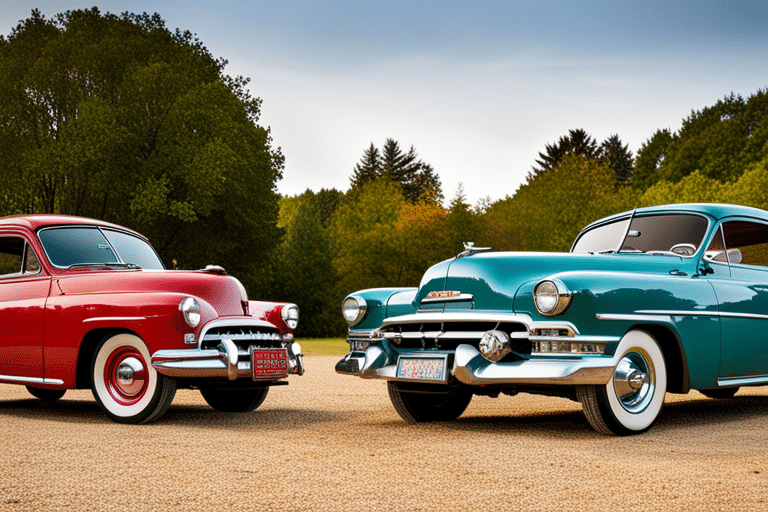
Hey there, car enthusiast! Buckle up for a wild ride as we debunk the myth that older cars are cheaper to insure.
You might think your ancient jalopy would save you some dough on insurance premiums, but hold onto your steering wheel because I’ve got news for you.
When it comes to car age and insurance costs, it’s not always smooth sailing on the savings highway.
Car Age Insurance Costs
One common misconception is that older cars always have lower insurance costs, but this is not necessarily true. While it may seem logical to assume that an older car would be cheaper to insure due to its lower value, there are other factors at play that can affect insurance rates.
Here’s why:
-
Car age and insurance rates: Insurance companies consider the safety features and repair costs of a vehicle when determining premiums. So, even if your old jalopy has sentimental value, it might not be as cost-effective to insure as you think.
-
Car age and coverage limits: Older cars may have higher coverage limits because they are more prone to accidents or breakdowns. This means insurers may charge more for comprehensive and collision coverage on older vehicles.
-
Car age and depreciation: As a car ages, its value depreciates over time. This could result in lower payouts from the insurer in case of an accident, which can lead to higher premiums.
-
Car age and reliability: Older cars tend to require more maintenance and repairs, increasing the risk of claims for insurers. Consequently, they may adjust their rates accordingly.
So next time someone tells you that insuring an older car will save you big bucks, take it with a grain of salt!
Now let’s dive into another myth about auto insurance: premiums based on age…
Premiums Based on Age
When it comes to auto insurance, age can play a significant role in determining premiums. Insurance companies use age as a factor because statistics show that certain age groups are more prone to accidents. But don’t despair! Age isn’t the only thing that affects your rates. There are many factors at play, and car insurance discounts may still be available to you regardless of your age.
Take a look at this table below to see how different age groups can impact insurance rates:
| Age Group | Average Premium |
|---|---|
| 16-19 | $3,500 |
| 20-29 | $2,000 |
| 30-39 | $1,500 |
| 40+ | $1,200 |
As you can see, younger drivers tend to have higher premiums due to their lack of driving experience. However, as you get older and gain more experience on the road, your rates will likely decrease.
Remember though, these numbers are just averages and individual circumstances vary. So always shop around for the best rate and inquire about any car insurance discounts you may qualify for based on your age or other factors. Safe driving!
Myth: Auto Insurance Rates Are the Same for Everyone

Did you know that auto insurance rates are not the same for everyone? It’s true! Insurance companies take into account a variety of factors when determining your premium. So, before you start feeling jealous of your neighbor’s low rates, let me enlighten you about why yours might be higher:
-
Location: Living in the heart of a bustling city can really drive up your insurance rates. After all, navigating through crowded streets and dealing with aggressive drivers can make accidents more likely. But hey, at least you have access to amazing food delivery options!
-
Driving record: If you have a habit of collecting speeding tickets like they’re shiny Pokémon cards, chances are your premiums will reflect that. Maybe it’s time to invest in a radar detector or just stick to driving the speed limit like the responsible adult you claim to be.
-
Age: Sorry youngins’, but being fresh out of driver’s ed means higher insurance rates for you. It’s not personal; statistically speaking, younger drivers tend to engage in riskier behavior on the road. Don’t worry though – one day you’ll join the ranks of ‘experienced’ drivers and enjoy those sweet lower premiums.
-
Credit score: Yes, even your financial responsibility affects your car insurance rates. Apparently, if you’re drowning in debt and maxing out credit cards left and right, insurers see that as a red flag for potential claims down the line. Time to pay off those student loans and show them who’s boss!
Myth: Your Auto Insurance Covers You if You Use Your Car for Work
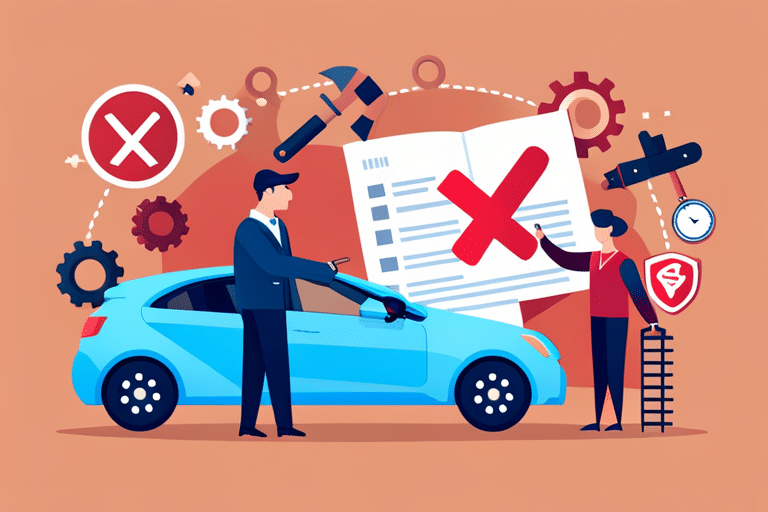
If you use your car for work, it’s important to know that your auto insurance may not provide the coverage you need. Sure, it might protect you from fender benders and parking lot mishaps, but when it comes to using your vehicle for things like rideshare driving or delivering packages, you might be out of luck.
Picture this: You’re cruising around town, picking up passengers left and right in your spiffy rideshare-mobile. The money is rolling in, and life is good. But then disaster strikes – a reckless driver rear-ends you at a stoplight. You breathe a sigh of relief because hey, you’ve got auto insurance! But here’s where things get sticky: most traditional auto insurance policies don’t cover accidents that occur while using your car for commercial purposes like ridesharing or delivery driving.
That’s where specialized auto insurance for rideshare drivers and delivery drivers comes into play. These policies are designed specifically to fill the gaps left by traditional coverage. They provide protection when you’re on the clock and ensure that both you and your passengers are covered in case of an accident.
So before you hit the road as a part-time Uber driver or start hauling packages for Amazon Prime, it’s essential to update your auto insurance policy to include coverage for commercial use. Don’t get caught in a sticky situation with expensive repairs and potential lawsuits.
But wait, there’s more! Now that we’ve debunked the myth about using your car for work, let’s move on to another common misconception: ‘Your Auto Insurance Will Cover Mechanical Breakdowns.’
Myth: Your Auto Insurance Will Cover Mechanical Breakdowns
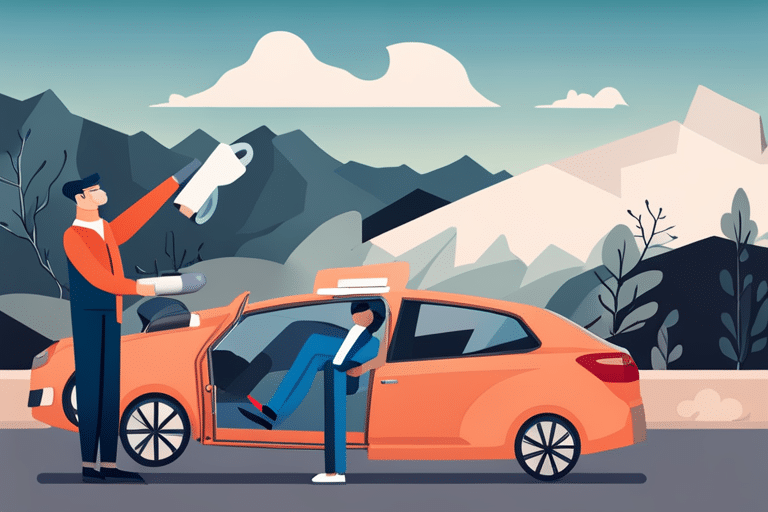
Now that we’ve cleared up the misconception about auto insurance covering work-related use of your car, let’s move on to another myth that has been floating around for far too long. Brace yourself, because this one might come as a shock: Your auto insurance will NOT cover mechanical breakdowns. Gasp! I know, it’s devastating news.
But before you start panicking and fearing the day your beloved vehicle decides to break down, take a deep breath and let me guide you through this.
Here are four reasons why your auto insurance won’t save you from pesky mechanical issues:
-
Car warranty coverage: Mechanical breakdowns typically fall under the realm of car warranty coverage, not auto insurance. So if you want protection against unexpected repairs, it’s time to look into getting a warranty specifically designed for that purpose.
-
Extended warranty options: If your factory warranty is about to expire or has already expired, don’t fret! There are plenty of extended warranty options available in the market that can give you peace of mind when it comes to those troublesome mechanical breakdowns.
-
Wear and tear vs. accidents: Auto insurance is primarily meant to cover damages caused by accidents or unforeseen events like theft or vandalism. It doesn’t account for wear and tear over time or inevitable mechanical failures.
-
Specialized coverage: In some cases, there may be specialized auto insurance policies available that provide limited coverage for certain mechanical issues. However, these policies often come with high deductibles and specific conditions that need to be met.
Myth: Auto Insurance Rates Are Determined Solely by Your Driving Record

Auto insurance rates aren’t solely determined by your driving record, but rather a combination of factors such as age, location, and type of vehicle. So, don’t fret if you’ve had a few fender benders or close encounters with parking meters. While accidents do have an impact on your rates, they are just one piece of the puzzle.
Let’s dive into the fascinating world of auto insurance premiums and explore the various factors that can affect them. First up, we have age. Now, I know what you’re thinking – ‘Oh great, another reason to feel old!’ But fear not! Insurance companies take into account your age because statistically speaking, younger drivers tend to be more accident-prone. So it’s not personal; it’s just math.
Next on our list is location. Depending on where you live, your rates may vary significantly. If you’re in a bustling city with heavy traffic and congested streets, insurers may see that as an increased risk for accidents and adjust your premiums accordingly. On the other hand, if you reside in a quiet suburban neighborhood where deer sightings outnumber fender benders (hopefully), you might enjoy lower rates.
Last but not least is the type of vehicle you drive. Flashy sports cars may turn heads on the road, but they can also turn heads at the insurance company when it comes time to calculate your premiums. These high-performance vehicles often come with higher repair costs and are more likely to be stolen or involved in accidents.
Myth: Your Auto Insurance Covers Damage From Natural Disasters
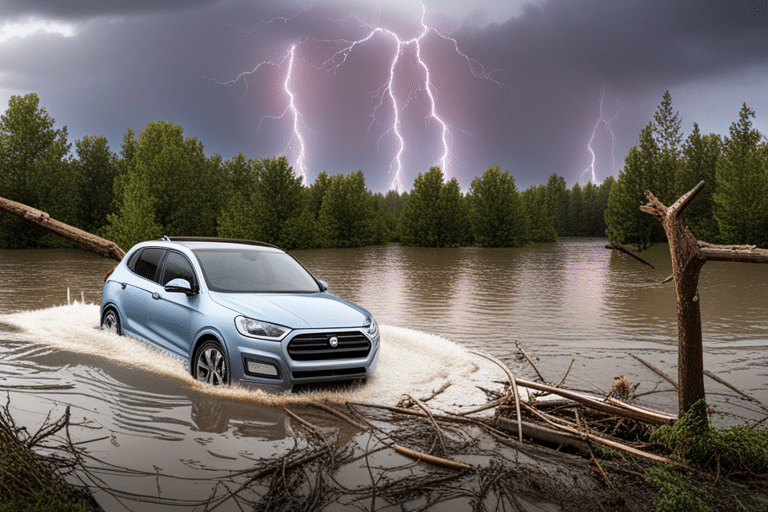
Don’t assume that your auto insurance will cover damage caused by natural disasters, as this is a common misconception. While auto insurance is designed to protect you from the everyday mishaps on the road, it doesn’t mean Mother Nature’s wrath is covered too. So before you start dreaming of filing an insurance claim after that freak tornado takes your car for a spin, let’s debunk this myth once and for all.
Here are four reasons why your auto insurance won’t save you when nature decides to throw a tantrum:
-
Act of God: Yes, storms can be pretty impressive displays of divine power, but unfortunately, they’re not covered by your policy. Your insurer isn’t in the business of compensating you for acts of God. Just imagine if they did – every time Zeus throws a lightning bolt, there would be chaos at the claims office.
-
Floods and Hurricanes: Water can wreak havoc on your precious ride, but unless you have specific flood or hurricane coverage, don’t expect any help from your standard policy. It’s like bringing an umbrella to a tsunami – it may offer some protection against light drizzles but won’t do much when things get serious.
-
Earthquakes and Volcanic Eruptions: If earthquakes and volcanic eruptions are part of your local scenery, then I’m sorry to say this but your car is not protected under normal circumstances. Unless you’re driving Fred Flintstone’s foot-powered vehicle, these natural disasters are just something you’ll have to deal with on your own.
-
Wildlife Encounters: Ah yes, the majestic deer crossing the road just as you approach – not covered! Whether it’s Bambi or Bigfoot himself causing damage to your car, unless he has his own insurance policy (doubtful), don’t expect any reimbursement from Mr. Insurance Man.
Myth: Full Coverage Auto Insurance Means You’re Fully Protected
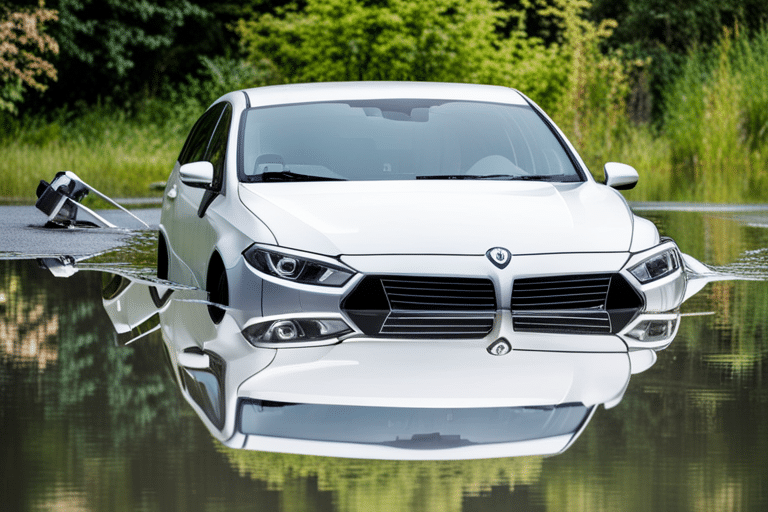
Contrary to popular belief, having full coverage auto insurance doesn’t guarantee complete protection. Sure, it sounds like the holy grail of insurance policies. Full coverage! It’s like having a force field around your car, right? Well, not quite.
Let’s talk about deductibles for a moment. You know those annoying little amounts of money you have to pay out of pocket before your insurance kicks in? Yeah, those things. They can really put a damper on your day if you’re not prepared. So, even with full coverage, you still have to dish out some cash when it comes time to make a claim.
And let’s not forget about liability coverage. This is the part of your policy that protects you if you accidentally cause damage or injury to someone else while driving. It’s important to understand how much liability coverage you have because if it’s not enough to cover all the damages and medical bills, guess who gets stuck with the rest? That’s right, it’s all on you!
So my friend, while full coverage may sound like the ultimate shield against any mishap on the road, it’s important to remember that there are still gaps in your protection. Deductibles and liability limits are two factors that can leave you vulnerable in certain situations.
But fear not! By understanding these key elements and making sure they align with your needs and budget, you can build a solid auto insurance policy that truly offers peace of mind – well worth its weight in gold… or maybe just a really nice cup of coffee. Either way, cheers to mastering the ins and outs of auto insurance!
Frequently Asked Questions
What Factors Besides Driving Record Can Affect Auto Insurance Rates?
Car model impacts your insurance rates, so that flashy sports car might cost you more. And don’t forget about geographic location – living in a high-crime area could make your rates skyrocket. Time to choose wisely!
Does Auto Insurance Cover Damage Caused by Natural Disasters?
Does auto insurance cover damage from natural disasters? Absolutely! Auto insurance can protect you from the wrath of wild weather. From floods to fires, your policy should have you covered. Just file a claim and let the experts handle it!
Can Auto Insurance Cover Stolen Personal Belongings From Your Car?
Yes, auto insurance can cover stolen personal belongings from your car, but there are coverage limits. Make sure to file insurance claims promptly and keep a detailed inventory of your stuff.
Is It True That Full Coverage Auto Insurance Provides Complete Protection?
Ah, the allure of full coverage auto insurance! While it may sound like the ultimate shield against all mishaps, beware of its limitations. Liability coverage and exclusions can still leave you vulnerable. Keep that in mind!
Does Auto Insurance Cover Mechanical Breakdowns?
Nope, auto insurance doesn’t cover mechanical breakdowns. It’s all about exclusions and limitations in those policies. But hey, regular vehicle maintenance can help prevent those pesky breakdowns. Time to get your hands dirty!
Conclusion
So there you have it, dear reader! The top myths and misconceptions about auto insurance have been debunked.
You may have believed that being a safe driver means you don’t need insurance, but think again! And as for those red cars? They may catch your eye, but they won’t catch your wallet when it comes to insurance rates.
And let’s not forget about the importance of credit scores – they can definitely affect your premiums. Remember, auto insurance doesn’t cover all types of damage or stolen belongings from your car. And sorry folks, but mechanical breakdowns are on you – not your insurance company.
Your driving record does play a role in determining rates, but other factors come into play too. And while we’re at it, natural disasters aren’t covered either – Mother Nature can be quite unpredictable!
Lastly, ‘full coverage’ doesn’t mean you’re fully protected – it’s just an umbrella term for a combination of coverages. So drive safe, keep these truths in mind, and remember: auto insurance is like a safety net for life’s unexpected potholes on the road of adventure!

